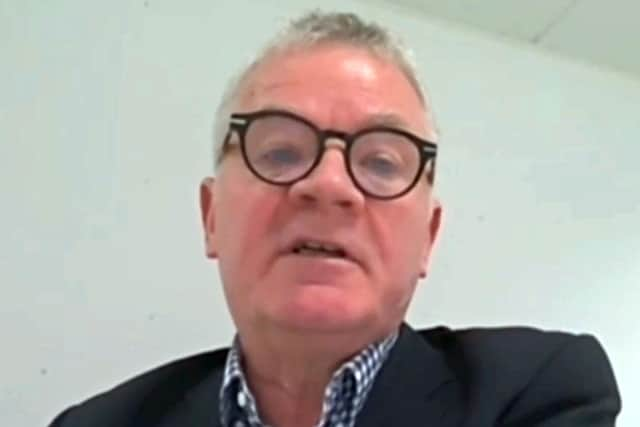Sir Kevan Collins quits role as England’s education recovery commissioner following Government’s £1.4bn package
and live on Freeview channel 276
Sir Kevan Collins, the Government’s education recovery commissioner, has quit after just four months in the role saying the support package “does not come close to meeting the scale of the challenge”.
The Department for Education (DfE) recently unveiled additional money to be used for tuition and teacher training, but it came under fire following suggestions that Sir Kevan called for 10 times as much to be invested.
‘A half-hearted approach risks failing hundreds of thousands of pupils’


Advertisement
Hide AdAdvertisement
Hide AdSir Kevan reportedly called for £15 billion of funding and 100 extra hours of teaching per pupil, rather than the £1.4 billion additional fund announced by the Government.
The education catch-up tsar said that the package announced by the Government “betrays an undervaluation of the importance of education”.
Sir Kevan said in a statement: “After the hardest of years, a comprehensive recovery plan – adequately funded and sustained over multiple years – would rebuild a stronger and fairer system.
“A half-hearted approach risks failing hundreds of thousands of pupils. The support announced by Government so far does not come close to meeting the scale of the challenge and is why I have no option but to resign from my post.”
Advertisement
Hide AdAdvertisement
Hide AdHe added that the package of support “falls far short of what is needed” as he warned that it is “too narrow, too small and will be delivered too slowly.”
“The average primary school will directly receive just £6,000 per year, equivalent to £22 per child. Not enough is being done to help vulnerable pupils, children in the early years or 16- to 19-year-olds,” Sir Kevan said.
‘I recommended a landmark investment in our teachers, whose dedication throughout the pandemic has been inspiring’
The DfE’s programme includes £1 billion to support up to six million, 15-hour tutoring courses for disadvantaged pupils, as well as an expansion of the 16-19 tuition fund which will target subjects such as maths and English.
A further £400 million will go towards providing high-quality training for early years practitioners and school teachers to ensure children progress.
Advertisement
Hide AdAdvertisement
Hide AdHowever, the education recovery tsar had recommended that schools and colleges should be funded for a flexible extension to school time - which would be the equivalent to 30 minutes extra every day - but the DfE’s announcement did not include plans to lengthen the school day.
Sir Kevan said: “As part of the plan I proposed to Government, I recommended a landmark investment in our teachers, whose dedication throughout the pandemic has been inspiring. It is also right to extend access to tutoring, in particular to support disadvantaged children.
“Tutoring can provide valuable support that complements classroom teaching. But it is not a panacea and must be high-quality to make a difference.
“This is one reason why I recommended schools and colleges be funded to extend school time for a fixed, three-year period and providing significant funding for a flexible extension to